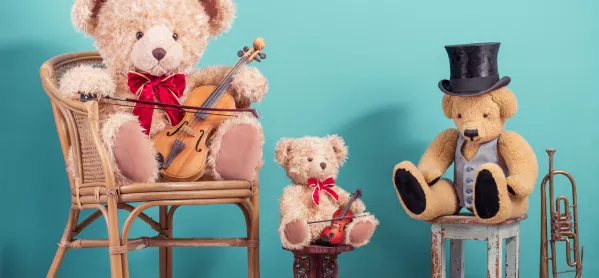- Home
- Early Years: are nursery rhymes dying out?
Early Years: are nursery rhymes dying out?

As I launch into singing “Hey Diddle Diddle…” I’m very aware of my own voice.
I look up and check the sea of little faces staring back at me with blank expressions. I am disappointed to acknowledge that none of the children are singing along.
Yes, it is just me and my faithful TA doing a duet. Again.
It isn’t stage fright because their parents are watching (often the case in a Nativity) but sadly because our children don’t know the words.
Each year, I find that fewer and fewer children know their nursery rhymes to the point where I fear they are dying out.
Why do nursery rhymes matter?
Over the years I have listened to the research support what my experience tells me: children who are secure with rhyme are more successful with reading.
A simple indicator to me is that a child who can rhyme tends to be able to blend words and often takes off quickly with reading. It is not the only factor, of course, but it is significant. I notice this time and time again when teaching reading in Reception.
When I first qualified as a teacher, “Rhyme Time” was a staple of the Reception timetable, particularly during the old Literacy Hour.
While I am glad to leave many aspects of that style of literacy teaching behind, I do feel that something has been lost here.
Rhyme time is squeezed out
One of the problems is the expectation that we move at such rapid pace, pushing through the many Letters & Sounds phases as early as possible, when often children need more time to consolidate the foundations.
In most schools, Reception children are being expected to get started with phase 2 within the first few weeks before the first half term. In my experience, it is almost non-negotiable.
Generally, there is little flexibility with the progression of the programme and consequently the timetable to do much about this.
We are very much aware of the expectation that all children should manage to reach a certain level in reading and phonics by the end of the year. However, it is very difficult trying to teach reading skills when not all children are ready.
Different starts
Children’s experiences before starting school vary widely. Realistically not all children have been given enough experience with listening to stories and rhymes. They typically lack taught skills in the areas of rhythm and rhyme, as well as oral blending and segmenting.
What’s more, we know that the children who are not secure with these phase 1 skills are the very same children who will struggle with phase 2, and could be on the path to intervention soon.
It is a shame, when all they need is some time. Children cannot run before they can walk.
Children are arriving at school with fewer of the skills that prepare them for reading, yet the end goals do not reflect this. The pressure is greater than ever.
What can be done?
Songs and rhymes have such a variety of forms and can be used effectively across the EYFS curriculum: number rhymes for maths, rhymes and songs linking to topic, moving to rhythm through dance, singing and musical performance.
Here are some ideas that we have discussed and started to work on in my school:
- Put a value on rhymes and try to have fun with them. Teach them wherever and whenever possible: lining up for lunch, singing in the garden area, key group time, beginning or end of the day.
- Work with parents to support children to learn and enjoy rhymes as much as possible. This is great as a home learning opportunity.
- Draw on quality authors who use rhyme (Nick Sharratt, Kaye Umansky and Julia Donaldson are my favourites). These texts use patterned language as well as rhyme to supports children’s overall skills in early reading.
- Bring in some drama. Children love to re-enact the rhyme together, particularly number based rhymes. I find this works very well for children with SEN or EAL.
- Work with feeder settings through transition conversation. Ask what phase 1 teaching looks like in the feeder preschools. There is often lots of variation. Consider a rhyme transition project.
- Book in local music groups to offer training for practitioners to build confidence and to learn new songs and rhymes.
- Work as a staff team to support one another to re-learn some forgotten rhymes and to expand your repertoire between you. The more songs we know as a team the more we can teach the children. We are trying to teach each other and constantly finding new rhymes online or in books.
- Join in with World Nursery Rhyme week (16-20 November). It is free to register and download the resources. Our nursery and Reception classes will be getting involved.
Helen Pinnington is early years foundation lead at St Thomas More’s Catholic Primary School in Hampshire
Keep reading for just £1 per month
You've reached your limit of free articles this month. Subscribe for £1 per month for three months and get:
- Unlimited access to all Tes magazine content
- Exclusive subscriber-only stories
- Award-winning email newsletters



